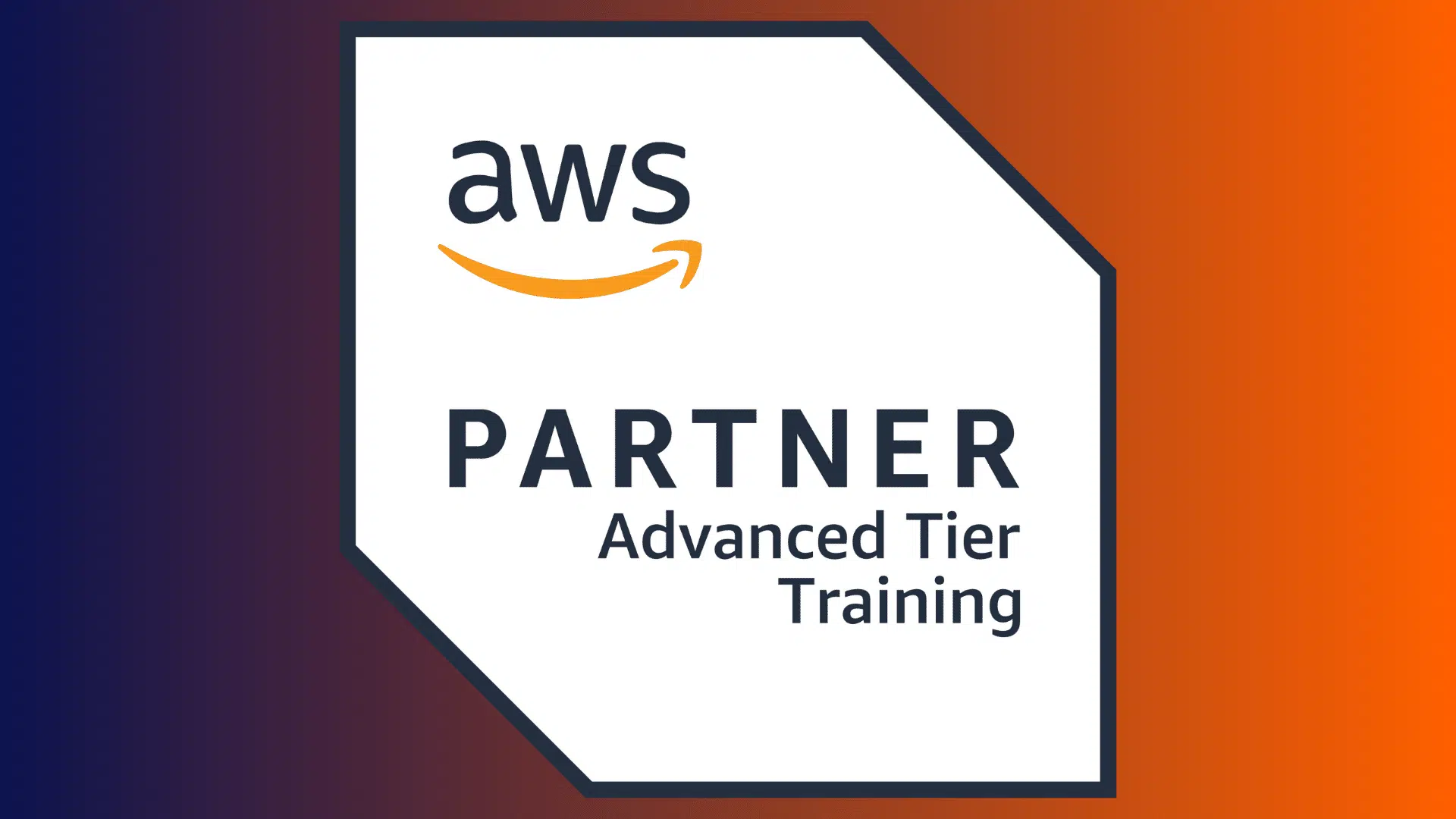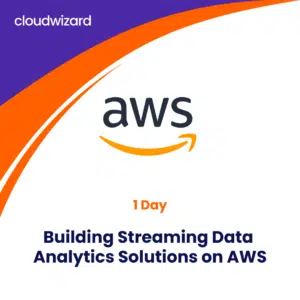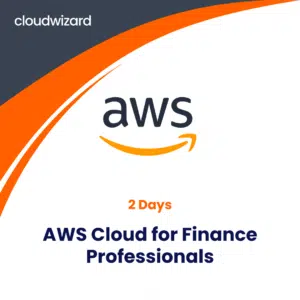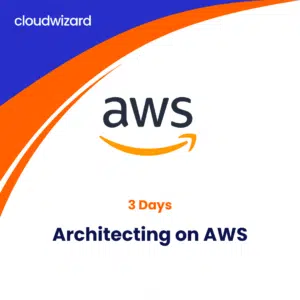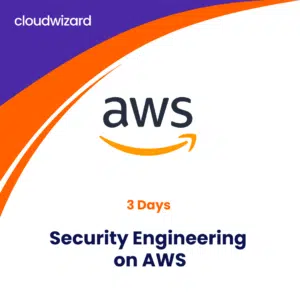Advanced Architecting on AWS
You will also learn to apply twelve-factor application manifesto concepts and steps while migrating from a monolithic architecture, along with using the AWS API, CLI and SDKs to monitor and manage AWS services
The course is recommended for experienced software developers who are already familiar with various AWS services. You will need at least one high-level programming language and working knowledge of core AWS services and public cloud implementations. We also recommend that you should have completed the Developing on AWS classroom course and have a minimum of six months experience in applying these concepts in real life
In this course, you will learn to:
- Review the AWS Well-Architected Framework to ensure understanding of best cloud design practices by responding to poll questions while following a graphic presentation
- Demonstrate the ability to secure Amazon Simple Storage Service (Amazon S3) virtual private cloud (VPC) endpoint connections in a lab environment
- Identify how to implement centralized permissions management and reduce risk using AWS Organizations organizational units (OUs) and service control policies (SCPs) with AWS Single SignOn
- Compare the permissions management capabilities of OUs, SCPs, and AWS SSO with and without AWS Control Tower to determine best practices based on use cases
- Discuss AWS hybrid network designs to address traffic increases and streamline remote work while ensuring FIPS 140-2 Level 2, or Level 3 security compliance
- Explore the solutions and products available to design a hybrid infrastructure, including access to 5G networks, to optimize service and reduce latency while maintaining high security for critical onpremises applications
- Explore ways to simplify the connection configurations between applications and highperformance workloads across global networks
- Demonstrate the ability to configure a transit gateway in a lab environment
- Identify and discuss container solutions and define container management options
- Build and test a container in a lab environment
- Examine how the AWS developer tools optimize the CI/CD pipeline with updates based on nearreal-time data
- Identify the anomaly detection and protection services that AWS offers to defend against DDoS attacks
- Identify ways to secure data in transit, at rest, and in use with AWS Key Management Service (AWS KMS) and AWS Secrets Manager
- Determine the best data management solution based on frequency of access, and data query and analysis needs
- Set up a data lake and examine the advantages of this type of storage configuration to crawl and query data in a lab environment
- Identify solutions to optimize edge services to eliminate latency, reduce inefficiencies, and mitigate risks
- Identify the components used to automate the scaling of global applications using geolocation and traffic control
- Deploy and activate an AWS Storage Gateway file gateway and AWS DataSync in a lab environment
- Review AWS cost management tools to optimize costs while ensuring speed and performance
- Review migration tools, services, and processes that AWS provides to implement effective cloud operation models based on use cases and business needs
- Provide evidence of your ability to apply the technical knowledge and experience gained in thecourse to improve business practices by completing a Capstone Project
This course is intended for:
- Cloud architects
- Solutions architects
- Anyone who designs solutions for cloud infrastructures
We recommend that attendees of this course have:
- Knowledge and experience with core AWS services from the Compute, Storage, Networking, and AWS Identity and Access Management (IAM) categories
- Attended the Architecting on AWS classroom training OR
- Achieved the AWS Certified Solutions Architect – Associate certification OR
- Have at least 1 year of experience operating AWS workloads
Module 1: Reviewing Architecting Concepts
- Group Exercise: Review Architecting on AWS core best practices
- Lab 1: Securing Amazon S3 VPC Endpoint Communications
Module 2: Single to Multiple Accounts
- AWS Organizations for multi-account access and permissions
- AWS SSO to simplify access and authentication across AWS accounts and third-party services
- AWS Control Tower
- Permissions, access, and authentication
Module 3: Hybrid Connectivity
- AWS Client VPN authentication and control
- AWS Site-to-Site VPN
- AWS Direct Connect for hybrid public and private connections
- Increasing bandwidth and reducing cost
- Basic, high, and maximum resiliency
- Amazon Route 53 Resolver DNS resolution
Module 4: Specialized Infrastructure
- AWS Storage Gateway solutions
- On-demand VMware Cloud on AWS
- Extending cloud infrastructure services with AWS Outposts
- AWS Local Zones for latency-sensitive workloads
- Your 5G network with and without AWS Wavelength
Module 5: Connecting Networks
- Simplifying private subnet connections
- VPC isolation with a shared services VPC
- Transit Gateway Network Manager and VPC Reachability Analyzer
- AWS Resource Access Manager
- AWS PrivateLink and endpoint services
- Lab 2: Configuring Transit Gateways
Module 6: Containers
- Container solutions compared to virtual machines
- Docker benefits, components, solutions architecture, and versioning
- Container hosting on AWS to reduce cost
- Managed container services: Amazon Elastic Container Service (Amazon ECS) and Amazon Elastic Kubernetes Service (Amazon EKS)
- AWS Fargate
- Lab 3: Deploying an Application with Amazon EKS on Fargate
Module 7: Continuous Integration/Continuous Delivery (CI/CD)
- CI/CD solutions and impact
- CI/CD automation with AWS CodePipeline
- Deployment models
- AWS CloudFormation StackSets to improve deployment management
Module 8: High Availability and DDoS Protection
- Common DDoS attacks layers
- AWS WAF
- AWS WAF web access control lists (ACLs), real-time metrics, logs, and security automation
- AWS Shield Advanced services and AWS DDoS Response Team (DRT) services
- AWS Network Firewall and AWS Firewall Manager to protect accounts at scale
Module 9: Securing Data
- What cryptography is, why you would use it, and how to use it
- AWS KMS
- AWS CloudHSM architecture
- FIPS 140-2 Level 2 and Level 3 encryption
- Secrets Manager
Module 10: Large-Scale Data Stores
- Amazon S3 data storage management including storage class, inventory, metrics, and policies
- Data lake vs. data warehouse: Differences, benefits, and examples
- AWS Lake Formation solutions, security, and control
- Lab 4: Setting Up a Data Lake with Lake Formation
Module 11: Large-Scale Applications
- What edge services are and why you would use them
- Improve performance and mitigate risk with Amazon CloudFront
- Lambda Edge
- AWS Global Accelerator: IP addresses, intelligent traffic distribution, and health checks
- Lab 5: Migrating an On-Premises NFS Share Using AWS DataSync and Storage Gateway
Module 12: Optimizing Cost
- On-premises and cloud acquisition/deprecation cycles
- Cloud cost management tools including reporting, control, and tagging
- Examples and analysis of the five pillars of cost optimization
Module 13: Migrating Workloads
- Business drivers and the process for migration
- Successful customer practices
- The 7 Rs to migrate and modernize
- Migration tools and services from AWS
- Migrating databases and large data stores
- AWS Schema Conversion Tool (AWS SCT)
Module 14: Capstone Project
- Use the Online Course Supplement (OCS) to review use cases, investigate data, and answer architecting design questions about Transit Gateway, hybrid connectivity, migration, and cost optimization
Why choose Cloud Wizard
- Advanced Tier Training Partner
- Amazon Authorised Instructors
- Official AWS Content
- Hands-on Labs
Class Deliverables
- E-Content kit by AWS
- Hands-on labs
- Class completion certificates
- Exam Prep sessions
Dates Available
Choose a date that works for you and click on Book Now to proceed with your registration.
| Method | Duration | Start Time | Start date | Price | Action |
|---|---|---|---|---|---|
| Classroom | 3 days | All Day | May 15, 2024 | ₹45,000 | |
| Classroom | 3 days | All Day | May 29, 2024 | ₹45,000 | |
| Classroom | 3 days | All Day | June 11, 2024 | ₹45,000 | |
| Classroom | 3 days | All Day | June 25, 2024 | ₹45,000 |
Don't see a date that works for you?
Fill in the form below to let us know.
Related courses
Related products
-
AWS Training
Building Streaming Data Analytics Solutions on AWS
In this course, you will learn to build streaming data analytics solutions using AWS services, including Amazon Kinesis and Amazon Managed Streaming for Apache Kafka (Amazon MSK). Amazon Kinesis is a massively scalable and durable real-time data streaming service. Amazon MSK offers a secure, fully managed, and highly available Apache Kafka service.
You will learn how Amazon Kinesis and Amazon MSK integrate with AWS services such as AWS Glue and AWS Lambda. The course addresses the streaming data ingestion, stream storage, and stream processing components of the data analytics pipeline. You will also learn to apply security, performance, and cost management best practices to the operation of Kinesis and Amazon MSK.
-
AWS Training
AWS Cloud for Finance Professionals
This course is aimed at enterprise level financial stakeholders who need to learn to manage, optimize and plan the organization’s cloud spend. You will learn to be more accountable and price conscious from an expert AWS Instructor. The course runs for two days and is focused on learning to innovate within your financial organization
As part of the course, you’ll learn to define cloud business models, estimate costs associated with your AWS account with the existing and future workloads. Tools used for reporting, monitoring, allocating, optimizing and planning AWS spending through pricing models on AWS Cloud shall also be covered.
If you are a Financial Stakeholder in an organization who wants to learn how to maximize cloud business value and use CFM best practices and to help the finance teams to innovate with AWS, this course is ideal for you. It is delivered by an Amazon Authorized Instructor with a mix of presentation, theory and knowledge checks.
-
AWS Training
Architecting on AWS
This course helps you identify services and features needed to build secure and highly available IT solutions in AWS Cloud. You will learn the basic practices of AWS Architecture and designing optimal IT solutions using the AWS Well-Architected framework.
Additionally, you will explore AWS Services related to account security, networking, storage, databases, automation, containers, serverless architecture, backup and recovery.
This course is ideally meant for Solution Architects, Solution-Design engineers and developers who seek to understand AWS Architecture principles. You will also be able to prepare for the AWS Certified Solutions Architect – Associate exam after the completion of this three day course. The course is delivered by an Amazon Authorized Instructor with theory, real-life scenarios and hands-on labs
-
AWS Training
Security Engineering on AWS
Cloud security is a big concern for customers looking to adopt the cloud. There has been a steady increase in cyber attacks and data breaches are top concerns for security teams. This course addresses these concerns by teaching you how to interact and build with AWS cloud in a very secure way. You will learn about managing roles and identities, provisioning accounts and monitoring the API activities for any anomalies.
Moreover, you will learn to protect the stored data in the AWS cloud together with generating, collecting, and monitoring logs to help identify security related incidents. The course is delivered with a mix of presentations, hands-on labs and group exercises. After completion, you will be able to attempt the AWS Certified Security – Speciality certification.
The course is best suited for Security engineers, Security architects, Cloud Architects and cloud operators. We recommend that you should have completed the AWS Security Essentials and the Architecting on AWS courses. Along with this, we also recommend that you should have working knowledge of IT security practices and infrastructure concepts.

